Understanding the Definition of a Plumber
What is a Plumber? – Explaining the fundamental role and responsibilities of a plumber
Every intricate system within a building hinges on one vital profession—the plumber. The plumber meaning extends far beyond merely fixing leaks; it embodies a craftsman who orchestrates the delicate balance of water, waste, and pressure that sustains modern life. In South Africa, where water conservation and infrastructure are pressing concerns, understanding what a plumber does becomes even more critical.
A plumber’s responsibilities encompass a broad spectrum of tasks—from installing and maintaining intricate piping networks to troubleshooting complex plumbing issues. They interpret blueprints, assess the condition of existing systems, and employ specialized tools to restore or optimize water flow. Their expertise ensures that homes, businesses, and public facilities function seamlessly, often under conditions that demand both ingenuity and resilience.
- Installation of plumbing fixtures
- Emergency repairs for burst pipes
- Maintenance of sanitation systems
- Inspection of water lines for integrity
In essence, the plumber meaning encapsulates a professional dedicated to safeguarding health and hygiene through meticulous craftsmanship—a vital role that quietly underpins daily life in South Africa and beyond. Their work is a testament to the importance of skilled tradespeople in maintaining the infrastructure that keeps society moving forward.
Etymology and Origin of the Term – Historical background and linguistic roots of the word ‘plumber’
The term “plumber” echoes through centuries of history, its roots woven into the fabric of early civilization’s quest for water and sanitation. Originating from the Latin word “plumbum,” meaning “lead,” it initially referred to those who worked with lead pipes—an essential resource for aqueducts and plumbing systems in ancient Rome. As civilizations evolved, so did the role, transforming from mere leadworkers into skilled artisans of water management. The plumber meaning thus embodies more than just a trade; it signifies a guardian of hygiene and health, a craftsman wielding both tradition and ingenuity.
In medieval Europe, the craft was often associated with the term “lead worker,” but it was during the Industrial Revolution that the profession truly expanded, embracing new materials and techniques. Today, the plumber meaning encompasses a versatile expert capable of interpreting blueprints, installing sophisticated piping, and troubleshooting complex systems. Their work is a testament to humanity’s relentless pursuit of progress—an art rooted in history yet ever modern in its application.
Different Interpretations of the Term – Variations in meaning across regions and contexts
The term “plumber” may evoke images of someone wielding a wrench beneath a sink, but its significance stretches far beyond that simple image. Across different regions and cultures, the plumber meaning varies, reflecting local histories and technological advancements. In South Africa, for instance, the role of a plumber intertwines with the nation’s ongoing development, emphasizing both tradition and innovation. Their work is a vital thread in the fabric of modern infrastructure, ensuring that water flows seamlessly through homes and industries alike.
In some areas, the plumber meaning is closely linked to the craft of pipefitting and water management, while elsewhere, it encompasses broader responsibilities like drainage, sanitation, and even environmental protection. To better understand this diversity, consider these variations:
- In urban centers, a plumber might be seen as a technical problem solver, equipped with state-of-the-art tools and complex blueprints.
- In rural communities, the plumber role often retains a more traditional aspect, focusing on basic water access and sanitation solutions.
Regardless of the context, the core essence of the plumber meaning remains rooted in safeguarding health and hygiene — a universal truth that transcends borders and history. The profession’s scope continues to evolve, yet its significance as a guardian of essential services remains unchanged. Whether in bustling cities or serene villages, the plumber meaning embodies a vital link between humanity and the fundamental resource of water, constantly adapting to meet the demands of progress and sustainability.
The Role and Duties of a Plumber
Installation and Repair of Plumbing Systems – Details on pipes, fixtures, and appliances
Behind every smoothly flowing tap and every warm shower lies the unseen artistry of a skilled plumber. The plumber meaning extends beyond mere pipe fitting; it embodies a guardian of water’s journey through our homes and businesses. Their role is a delicate dance of installation and repair, ensuring that the intricate web of plumbing systems functions flawlessly. From the initial blueprint to the final screw, a plumber’s duties include meticulously handling pipes, fixtures, and appliances, transforming chaos into order.
In the heart of their craft, plumbers work with an array of components that form the backbone of any plumbing system. These include:
- Water supply pipes
- Drainage and waste pipes
- Fixtures such as sinks, toilets, and bathtubs
- Appliances like water heaters and dishwashers
Every installation or repair task requires an eye for detail and a mastery of materials. Whether sealing leaks or designing a new water system, a plumber’s expertise ensures the seamless flow of life’s essential resource—water. Their work is a blend of science and artistry, a testament to the profound importance of the plumber meaning in our daily lives.
Maintenance and Inspection Services – Importance of regular checks and servicing
In the bustling world of home and business maintenance, the plumber meaning extends far beyond unclogging drains or fixing leaks. It’s a vital role that safeguards our daily comfort and health, ensuring that water flows where it should—safely and efficiently. Regular maintenance and inspection services are the unsung heroes of this profession, preventing minor issues from morphing into costly disasters. Think of it as giving your plumbing system a routine health check-up—because, let’s face it, nobody wants a surprise flood or a chilly shower mid-way through winter!
Plumbers perform vital tasks like checking for corrosion, assessing pipe integrity, and ensuring fixtures are functioning smoothly. A keen eye for detail and a knack for troubleshooting are essential—after all, a tiny crack can become a major headache if left unchecked. Some plumbers even offer comprehensive services, including:
- Leak detection and repair
- Drain cleaning and blockage removal
- Water pressure testing
- System upgrades and replacements
Investing in regular plumbing inspections not only prolongs the lifespan of your system but also saves money in the long run. Because in the world of plumbing, prevention is truly better than the costly cure. Remember, understanding the plumber meaning means appreciating their role as guardians of water flow—keeping our homes dry, safe, and operational, one inspection at a time!
Specializations within Plumbing – Different fields like pipefitting, drainage, and water supply
The role of a plumber extends into a fascinating realm of specialized expertise, each field demanding a unique skill set and a keen understanding of complex systems. When exploring the plumber meaning, it’s essential to recognize that this profession isn’t confined to simple repairs; it encompasses a spectrum of disciplines that keep our water systems functional and safe. In South Africa, where water management is both a necessity and a challenge, plumbers are often regarded as unsung heroes behind the scenes.
Within the broad scope of plumbing, there are several key specializations. Pipefitting, for example, involves the precise assembly and installation of intricate pipe networks used in industrial applications and large-scale infrastructure. Drainage specialists focus on the efficient removal of wastewater, preventing blockages that could threaten health and sanitation. Water supply technicians ensure that homes and businesses receive a steady, reliable flow of clean water—an essential component of modern living.
Understanding the plumber meaning also highlights the importance of versatility in this field. Some plumbers excel in leak detection and repair, while others specialize in system upgrades and replacements. The depth and breadth of plumbing expertise are what make this profession a cornerstone of public health and safety in South Africa’s diverse environments. Whether tackling complex pipefitting projects or ensuring the integrity of water supply systems, plumbers are integral to maintaining the lifeblood of our communities.
Types of Plumbers and Their Expertise
Residential vs. Commercial Plumbers – Distinguishing services based on client type
When you hear the term “plumber meaning,” it’s often associated with someone who fixes leaky faucets or unclogs stubborn drains. But in reality, a plumber’s expertise extends far beyond those mundane tasks. There are distinct types of plumbers, each with specialized skills tailored to different client needs. Understanding these differences can save you from hiring the wrong professional for your plumbing dilemma.
Residential plumbers primarily focus on homes, tackling everything from installing new pipes to repairing water heaters. Their expertise ensures your morning shower doesn’t turn into a plumbing catastrophe. On the other hand, commercial plumbers handle larger-scale projects like office buildings, shopping malls, and industrial facilities. These professionals often deal with complex drainage systems and high-pressure water supply networks.
Sometimes, the plumber meaning also includes specialists such as pipefitters or drainage experts, each honing in on specific aspects of plumbing systems. Whether you’re maintaining your South African home or upgrading a commercial property, knowing which type of plumber you need is crucial. After all, a misstep could lead to more than just a leaky faucet—perhaps a costly plumbing fiasco!
Emergency Plumbers – Handling urgent plumbing issues
When plumbing emergencies strike, quick and expert response is essential. This is where emergency plumbers come into play—specialists trained to handle urgent plumbing issues that can’t wait. Whether it’s a burst pipe flooding your property or a blocked drain causing chaos, these professionals are equipped with the skills and tools to resolve problems swiftly. Their expertise often extends to troubleshooting complex issues that require immediate attention, preventing further damage and costly repairs.
In South Africa, the plumber meaning encompasses a range of specialists beyond just fixing leaks. Emergency plumbers, for example, are versatile professionals capable of addressing issues like sewer backups, gas leaks, or broken water mains. Their ability to respond promptly can mean the difference between a manageable inconvenience and a major disaster. Depending on the severity of the situation, they might employ techniques such as high-pressure jetting or trenchless repairs.
- Rapid response to urgent problems
- Expertise in complex, high-pressure situations
- Use of advanced tools and techniques
- Ability to diagnose hidden issues quickly
Understanding the plumber meaning helps homeowners and business owners identify when to call in these specialists. Emergencies aren’t always predictable, but knowing which plumbing professional to contact can save time, money, and stress in the long run. After all, plumbing crises demand expert intervention—nothing less will do when your property’s integrity is on the line.
Specialized Plumbing Professionals – Experts in areas like gas fitting and sprinkler systems
Not all plumbers are created equal. In South Africa, the plumber meaning extends beyond fixing leaks—these professionals bring specialized skills to complex tasks. From gas fitting to sprinkler systems, expert plumbers are trained to handle specific systems that require precision and knowledge. Their expertise ensures safety, efficiency, and compliance with local regulations.
For example, gas fitters—who are a subset of plumbing professionals—must adhere to strict safety standards when installing or repairing gas lines. Similarly, sprinkler system specialists design and maintain fire suppression systems that protect lives and property. These specialists often use advanced techniques and tools, such as trenchless pipe repairs or high-pressure jetting, to deliver effective solutions.
- Gas fitting
- Sprinkler system installation
- Drainage system repair
- Water treatment and filtration
Understanding the various types of plumbing professionals highlights the importance of selecting the right expert for each task. Whether it’s a commercial project or residential maintenance, knowing the plumber meaning helps you identify the right skill set needed. These specialists ensure that every job is done safely, efficiently, and to the highest standards.
Skills and Qualifications of a Professional Plumber
Training and Certification – Educational pathways and licensing requirements
Understanding the plumber meaning extends far beyond the simple act of fixing leaks; it embodies a skilled craft rooted in diverse educational pathways and rigorous certification processes. In South Africa, aspiring plumbers often embark on a journey that combines practical training with formal qualifications, ensuring they meet high standards of competency. The importance of licensing cannot be overstated—it’s the seal of professionalism that guarantees quality and safety in every installation or repair.
Typically, becoming a licensed plumber involves completing a recognized apprenticeship, which might span several years, during which one gains hands-on experience under seasoned experts. Educational pathways may include technical colleges offering specialized courses in plumbing, water systems, and gas fitting. To legally operate within the industry, plumbers must obtain relevant certifications, often mandated by local authorities, which serve as proof of their skills and adherence to safety regulations.
- Completion of an accredited training program
- Accumulation of practical experience through apprenticeships
- Successful passing of licensing examinations
Ultimately, these qualifications elevate the plumber meaning from mere manual labor to a respected profession, ensuring that every pipe and fixture is installed with precision and expertise. Such dedication to skill and certification is what distinguishes a true professional in the plumbing industry—an essential pillar of modern infrastructure in South Africa’s evolving cities and towns.
Essential Skills – Technical proficiency, problem-solving, and customer service
The essence of the plumber meaning extends beyond merely fixing leaks or unclogging drains; it embodies a sophisticated blend of technical mastery and problem-solving finesse. A professional plumber in South Africa must possess a diverse skill set that ensures every installation and repair meets rigorous safety and quality standards. Critical to this expertise is technical proficiency—an intuitive understanding of water systems, pipe configurations, and modern fixtures that often involve complex configurations.
In addition to technical skill, problem-solving is a cornerstone of the plumber meaning. When unexpected issues arise—from burst pipes to faulty water heaters—an adept plumber quickly diagnoses the root cause and implements effective solutions. Customer service also plays a vital role—clear communication, professionalism, and reliability are essential qualities that elevate the traditional craft into a respected profession. Some of the essential skills include:
- Technical proficiency in plumbing systems
- Strong problem-solving abilities
- Excellent customer service skills
These attributes are complemented by relevant qualifications and certifications, which serve as a testament to a plumber’s dedication and competence. Whether working on residential or commercial projects, a skilled plumber in South Africa ensures that every pipe, fixture, and water supply system operates seamlessly—an indispensable part of modern infrastructure that requires both craft and integrity.
Tools of the Trade – Common equipment used by plumbers
Understanding the plumber meaning extends far beyond the simple act of fixing a dripping tap; it embodies a mastery of tools, techniques, and expertise that keep our daily lives flowing smoothly. A professional plumber in South Africa must be well-versed in a variety of skills and qualifications, which serve as the foundation for delivering top-tier service. Their toolkit is as diverse as their knowledge, encompassing everything from basic hand tools to sophisticated diagnostic equipment.
The tools of the trade are crucial for any plumber aiming to uphold the highest standards. Common equipment used by plumbers includes:
- Pipe wrenches
- Plumber’s snakes
- Adjustable spanners
- Pipe cutters
- Pressure gauges
Each of these tools plays a vital role in facilitating efficient installations, repairs, and maintenance. Mastering their use, combined with relevant qualifications and certifications, elevates a plumber’s expertise—ensuring every project is executed with precision and professionalism. Whether working within the confines of a residential home or a sprawling commercial complex, a skilled plumber in South Africa confidently navigates complex water systems, exemplifying the true essence of the plumber meaning.
Plumber as a Profession and Its Significance
Economic Impact and Job Market – Employment opportunities and industry growth
The plumber meaning transcends mere pipefitting; it embodies a vital nexus between human comfort and infrastructural resilience. In South Africa, the profession’s economic significance is unmistakable, fueling industry growth and offering promising employment opportunities. As urbanization accelerates, the demand for skilled plumbers rises, reflecting the essential role they play in maintaining public health and safety. The job market is dynamic, with specialization becoming increasingly prevalent—ranging from gas fitting to drainage systems—highlighting a diverse array of career paths. This industry’s robust expansion underscores the importance of a well-trained workforce equipped with technical proficiency and problem-solving acumen. For many, becoming a plumber isn’t just a livelihood but a pathway to contributing meaningfully to society’s foundational needs, making the plumber meaning more profound than its simple definition. In essence, this profession’s profound impact resonates through every pipe laid and repair executed, underpinning modern life’s seamless flow.
Health and Safety Importance – Role in sanitation and public health
When you think of a plumber, what comes to mind? Is it just someone who tightens a few nuts and bolts? Think again! The plumber meaning extends far beyond simple pipefitting—this profession is a cornerstone of public health and safety. In South Africa, where urbanization is racing ahead, the role of a plumber is vital in maintaining sanitation standards and preventing health crises. Without skilled plumbers, our homes, businesses, and cities would be submerged in chaos—and possibly raw sewage.
Plumbers are the unsung heroes of modern infrastructure. They ensure that clean water flows seamlessly into every tap and that waste is efficiently whisked away. Their work directly impacts sanitation and, ultimately, our well-being. From inspecting drainage systems to installing complex water supply networks, a plumber’s expertise safeguards the community’s health. It’s no exaggeration to say that the plumber meaning is synonymous with life itself—without them, daily routines would be a mess!
Environmental Considerations – Sustainable plumbing practices and water conservation
In the shadowed corridors of urban life, the plumber meaning transcends mere pipework and fixtures. It is a vocation rooted in the delicate art of safeguarding our most vital resource—water—and shielding communities from the chaos of sanitation failures. In South Africa, where water scarcity and infrastructure challenges loom large, the role of a plumber is nothing short of vital. Their work is a silent guardian, ensuring that the flow of clean water remains unbroken and that waste is expelled with precision.
Environmental considerations have cast a new light on traditional plumbing practices. Modern plumbers are increasingly adopting sustainable plumbing practices and water conservation techniques, vital in a country where every drop counts. Innovations such as rainwater harvesting systems, low-flow fixtures, and greywater recycling are becoming standard. These measures not only reduce the strain on municipal resources but also help protect the fragile ecosystems that are often under threat from overuse and pollution. The plumber meaning, therefore, is evolving—integrating ecological mindfulness into every installation and repair.
In a realm where darkness and light intertwine, the skilled plumber embodies a harmony of technical mastery and environmental stewardship. Their expertise becomes a bulwark against the relentless encroachment of chaos—preserving the sanctity of our daily routines and the health of our planet. For those who understand the true plumber meaning, it is clear: they are the unseen architects of sustainability and guardians of human dignity in a world teetering on the brink of ecological peril.
Common Misconceptions and Myths about Plumbers
Misunderstanding the Scope of the Job – Clarifying what plumbers do versus general perceptions
Many believe that a plumber’s role is solely about fixing leaking taps or unclogging toilets. However, this common misconception vastly understates the true scope of a plumber’s expertise. The plumber meaning extends far beyond these mundane tasks, encompassing intricate system installations, complex repairs, and vital maintenance that keep our water supply flowing seamlessly.
There’s a tendency to see plumbers as mere fixers of household nuisances, but in reality, their work involves a sophisticated understanding of plumbing systems, water pressure management, and safety protocols. To clarify, a plumber’s responsibilities can include installing gas fittings, managing drainage systems, and ensuring compliance with health standards—functions that demand specialized skills and certification. In South Africa, the plumber meaning often varies regionally, but universally, it signifies a professional with a mastery of both practical and technical facets of water and sanitation systems.
Cost and Pricing Myths – Debunking common pricing misconceptions
Many people assume that the plumber meaning is limited to fixing leaking taps or unclogging toilets. However, this narrow perception couldn’t be further from the truth! The true plumber meaning encompasses a wide array of specialized tasks, from installing complex water systems to managing intricate drainage networks. It’s a profession rooted in technical mastery, not just household repairs.
One common myth is that plumbers are only involved in emergency repairs. In reality, their work often involves detailed planning, precise installation, and ongoing maintenance—elements that demand a high level of expertise. Whether it’s managing water pressure or ensuring compliance with safety standards, the plumber meaning extends to critical roles that safeguard public health and environmental sustainability.
Understanding the plumber meaning helps to appreciate the skill set required. It’s not just about fixing problems but about designing and maintaining systems that keep water flowing seamlessly. So, next time you call a plumber, remember the depth of their craft—beyond the myths and misconceptions—truly a blend of science, skill, and service.
Availability and Accessibility – Addressing myths about plumbing services
Despite the widespread perception that plumbers are only available during emergencies, the reality is quite different. Many believe that plumbing services are limited to urgent repairs, but in truth, the plumber meaning encompasses a broad spectrum of essential tasks. Skilled plumbers are often engaged in routine maintenance, inspections, and system upgrades that prevent costly failures down the line.
Availability and accessibility of plumbing services are often misunderstood. For example, some assume that plumbers are hard to reach or only work during normal business hours. However, many reputable plumbing companies in South Africa offer 24/7 emergency services, ensuring help is always just a call away. This availability is crucial for safeguarding public health and maintaining vital water systems in both residential and commercial settings.
Furthermore, the plumber meaning extends beyond simple repairs. It involves specialized professionals capable of handling complex installations, pipefitting, drainage, and water supply systems. Whether it’s a small leak or a large-scale plumbing project, the industry’s scope demonstrates a level of expertise that often goes unnoticed. Accessibility isn’t just about physical presence; it’s about providing reliable, expert service whenever needed.
How to Choose a Reliable Plumber
Tips for Hiring the Right Professional – Qualifications, reviews, and licensing checklists
Finding a reliable plumber in South Africa isn’t just about dialing the first number you see—it’s about understanding the true plumber meaning. A skilled professional can turn a soggy catastrophe into a minor inconvenience, but a questionable one? Well, that’s a recipe for more waterworks than you bargained for. When hiring a plumber, look beyond the superficial; dig into their qualifications, reviews, and licensing checklists to ensure they’re not just another pipe dream.
To truly grasp the plumber meaning, consider their credentials and reputation. A licensed plumber with positive reviews from satisfied clients signals dependable service. In South Africa’s bustling plumbing industry, a comprehensive licensing check is your best safeguard against shoddy workmanship. Remember, a good plumber isn’t just someone who knows how to tighten a tap—they possess a blend of technical proficiency, problem-solving skills, and customer service finesse. Whether it’s a leak, installation, or emergency repair, choosing the right professional makes all the difference.
For an added layer of assurance, ask about their specialization—some plumbers excel in gas fitting, while others are maestros in drainage or water supply. A simple
- verification of credentials
- reading authentic reviews
- ensuring proper licensing
checklist can save you from costly mistakes and plumbing nightmares. In a country where water conservation is more than just a buzzword, selecting a qualified plumber with a keen understanding of sustainable practices is a smart move. After all, in the grand scheme of plumbing, the plumber meaning extends far beyond pipes and fixtures—it’s about trust, expertise, and peace of mind.”
Questions to Ask Before Hiring – Ensuring transparency and trust
Choosing a reliable plumber means more than just picking the first name that pops up on your screen. It’s about unraveling the true plumber meaning—understanding the depth of their expertise, credentials, and integrity. Before making that call, ask essential questions that shed light on their professionalism and transparency. Do they hold valid licensing and certifications? Can they provide references or reviews from satisfied clients? These questions are the cornerstone of establishing trust and ensuring you’re not just hiring a general fix-it person but a true plumbing expert.
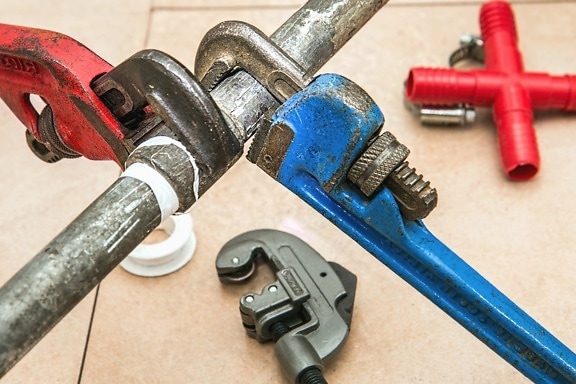
In South Africa, where water conservation and sustainable practices are becoming increasingly vital, it’s also wise to inquire about their specialization areas. Whether it’s gas fitting, drainage, or water supply—knowing their focus ensures the right fit for your needs. A dependable plumber should comfortably answer questions about their experience with different systems and explain their approach clearly. Remember, the plumber meaning extends beyond fixing pipes; it’s rooted in trust, competence, and the assurance that your plumbing issues will be resolved efficiently and ethically.
Importance of Emergency Services – Availability outside regular hours
When choosing a plumber, understanding the true plumber meaning is crucial. Beyond fixing leaks, a reliable plumber offers peace of mind, especially in emergencies. Water issues can escalate quickly, causing damage and health hazards, so knowing their availability outside regular hours becomes essential. Emergency services ensure that urgent problems—like burst pipes or blocked drains—are addressed swiftly, minimizing disruption. In South Africa, where water conservation is increasingly vital, a dependable plumber should also be able to provide insights into sustainable practices during urgent repairs. The plumber meaning isn’t just about technical skills; it encompasses responsiveness, availability, and a commitment to quality service. Opting for a professional who offers 24/7 emergency assistance guarantees that your plumbing concerns are handled promptly, no matter the hour. After all, the true essence of a trustworthy plumber lies in their readiness to serve when you need them most.
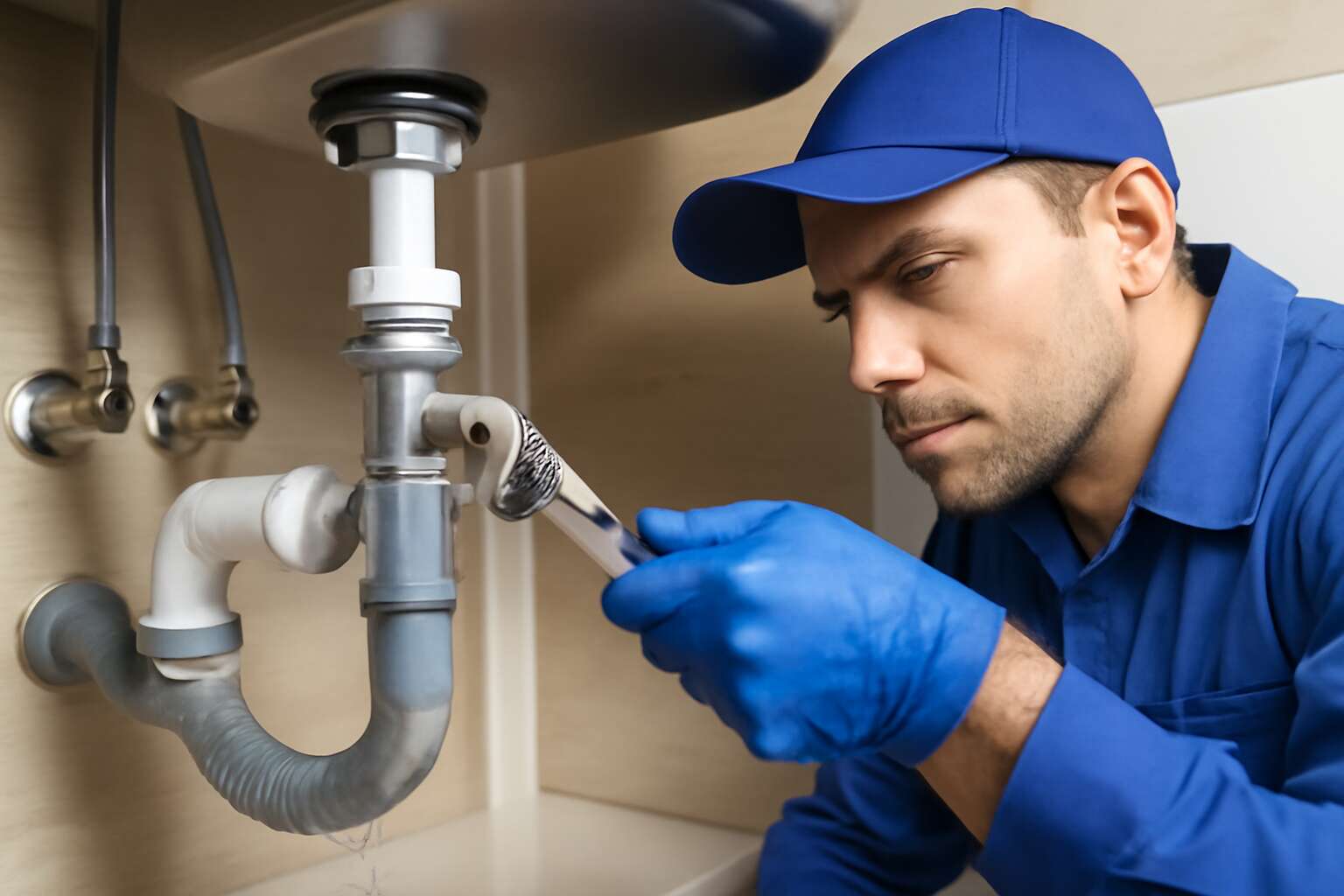
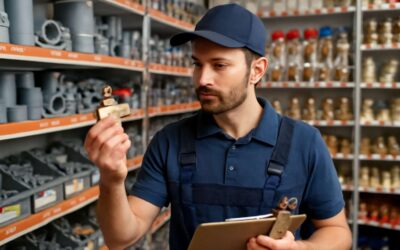
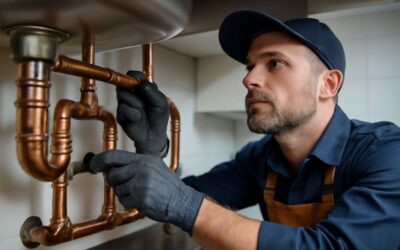
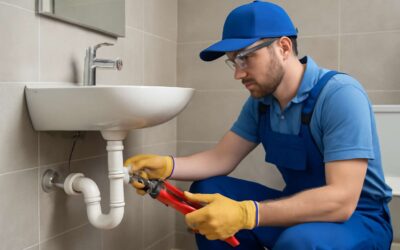
0 Comments